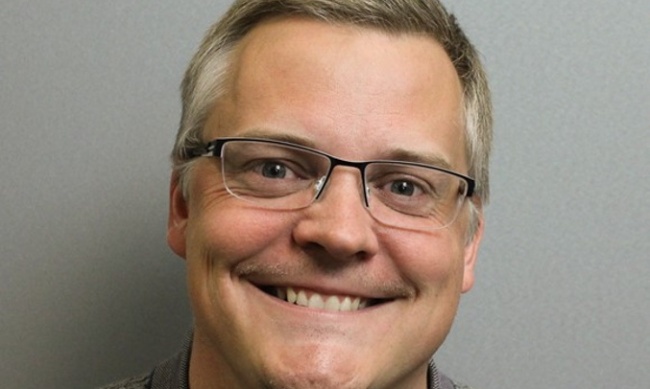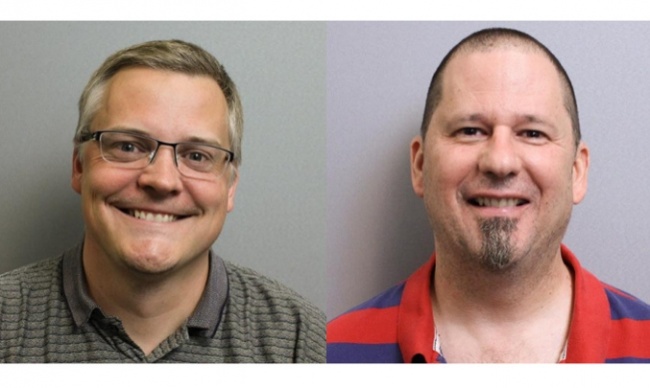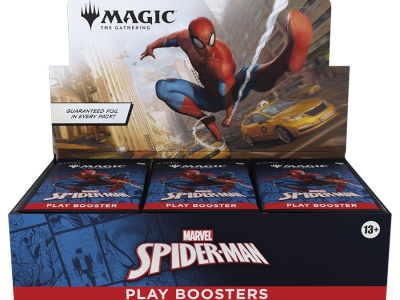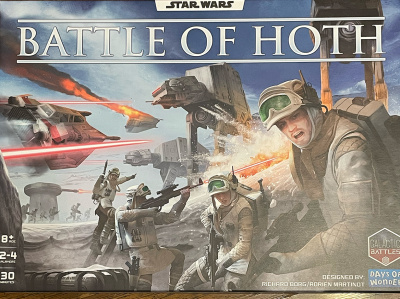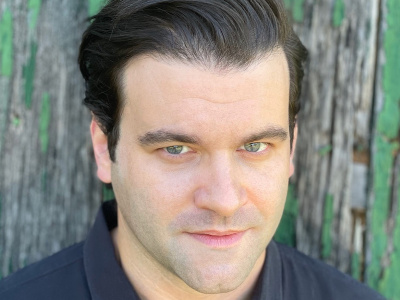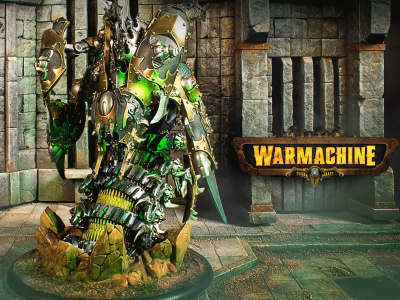For the rest of our interviews with Asmodee execs:
ICv2 Interview: Asmodee Execs on the State of the Market, Part 1
ICv2 Interview: Asmodee Execs on the State of the Market, Part 2
ICv2 Interview: Asmodee Execs on New Distribution Policies
ICv2 Interview: Asmodee Execs on the ANA Consolidation, Part 2
ICv2 Interview: Asmodee Execs on Diversity in Hobby Games
ICv2 Interview: Asmodee Execs on Counterfeiting
It’s been about a year and a half since the business side of the various Asmodée companies was consolidated into ANA here in Roseveille, which you run. What would you say went well with that transition?
Petersen: I think our latest set of policies and market engagements that we did with the Alliance partnership has really shown what we can do when we get an efficient infrastructure knitted together. Whether you’re a Flagship Platinum, Flagship Gold, or other Asmodee category of retailer, we’ve been able to actually extend a better discount to the trade than we've ever had. I feel we have been able to reward the marketplace by consolidation.
We've been able to put together an infrastructure based on volume, one where we finally can try to become a communications and data-driven company that will to help our retail partners and gamers grow, and to have access to more great game product in the future. The ability to add value has been a very important goal behind the scenes.
We're able to go out now and create a lot of architecture and infrastructure around our various studio brands, such as providing amazing consumer convention experiences that were very difficult to do for individual publishers to do before.
Horvath: It's given us a chance to consolidate a voice in a crowded marketplace. We’ve talked about how many games have come out. One of the numbers that I've heard was there were over 3,500 new releases last year. That's 10 games a day on average. Nobody can absorb that. Everything gets lost in the shuffle. Games that would have been successful two years ago are being completely forgotten today.
With this consolidation, and now this deal with Alliance, and having a dedicated specialist team to call hobby retailers, and give them information directly from us, it gives them a chance to know more about what's going on, and not miss a game that might otherwise be successful for them that they would miss out on.
We could only do that by aggregating all of these companies into one voice, into one entity to give us the resources to do that.
Are you ABCing games, and saying, "This is going to be an A game, and this one's going to be a C"? Are you telling them, "This game's a C game. If you're a big store, and you have a wide range of customers, you might want to stock that, otherwise maybe not"?
Petersen: I think we're going to be a little more data-driven than that. We'll be able to go and look at individual stores, see how they're successful, what it is that's driving their success, come up with a unique package for what could work for their audience, and where they could grow. It's not one size fits all, or fits an A, B, or C category, necessarily.
Horvath: When we have the data to show that your shop is doing tremendously well with this, and that we know that this game was designed to be appealing to the same type of customer that this appeals to, we can tell you that based on fact.
Petersen: With a brand new game, there's going to be no data on it, obviously. We can probably profile that game, and then we can look very carefully across the data that we now have and basically say, "Listen, what's happening regionally? What's happening nationally? What's happening in that city? What's happening with that store?" And actually say, "Listen, based on this data, on correlated data and the type of game we're distributing, we have some suggestions for you that are objectively driven."
Now, will they work for your retail store? Of course, we cannot guarantee that, but certainly it's something that's driven by more than just opinion or spend. It's driven by actual facts, and that is something new for all of us in the hobby game space.
How close are you to doing that, or are doing it now?
Petersen: We are developing that program. I think it's very exciting. By this time next year, next September, I really hope we can sit here together, and we can talk about some of the programs we’ve launched in trying to help the retailer on the data-driven side.
Obviously, if the retailers are successful with this approach, and they're able to be more profitable, and therefore generate more gamers, then gamers will have more people to play with, expanding the overall player community, and so on. It's a virtuous cycle all around. Of course, the more successful Asmodee is, the more investment we can put into games, R&D, designers, and so on. Hopefully, it will positively affect everyone involved over time.
Anything that didn't go the way you'd hoped in the transition?
Petersen: I guess the thing that's hard is that when we're plowing forward, trying to make a company that's going to be a force for good, trying things that are going to help certain parts of the market, trying to help brick and mortar, we're trying to think for the long term that this is viewed with instant suspicion.
Asmodee has become a large organization, and has shaken things up in the last couple of years, so our intentions and actions are often automatically assumed to be nefarious and driven by motives other than being able to grow and thrive as a company in a healthy market. The negative "large company" bias has been more pronounced that I’d hoped, but probably one I should have expected.
Obviously, we're a corporation and we're looking to succeed, to drive profit, and to grow our market. No doubt about it. Yet, I'm really proud of having joined an organization that can look at a medium-to-long -term strategy, one that is willing to take a breath and say, "Well, we could sell a lot more games the next three months by doing X, but that's going to hurt the industry (and Asmodee) in the long run. Why don't we take a different road that’ll be better for us tomorrow, and do Y instead?"
That's been a bit difficult to properly communicate, because it's not necessarily transparent at all levels. The retailers or end user may not have all the facts about what's going on. It's difficult to aggregate into the size that we've been, and actually keep the image of the company where we feel it should be. Lesson learned for me.
Horvath: As Christian said earlier, last year in 2016 when we made those initial policies, there were very strong emotional reactions from a lot of people. But as he stated, the easiest short-term answer for us was to have done nothing. Sales were incredibly strong, and continuing to grow. You could say from an investor point of view or a corporate point of view, the easy thing to do would be to just sit there and exploit that. But we're big believers in the hobby marketplace and growing new gamers, for not just year, but 5 years from now, 10 years from now, 20 years from now.
We felt like it was a real threat to the long-term integrity of the hobby game market in particular to not take action. We want that market to be successful over the long term, not just the next few years.
Petersen: I spent some time talking to people that compared the current hobby games market conditions to the sports cards business several years ago. Sports cards used to be a thriving business. You would have these shops selling cards, trading cards, and they would become a hub for a local community of collectors that would talk together, open packs in the store, talk sports with the store owner, trade cards to complete collections, meet new friends, etc.
Then the market entered the era of deep-discounted case and box sales direct to consumers, encouraged by the sports card publishers who saw resulting big spikes in volume.
Of course, this practice decimated all the local shops in the sports card business.
In the first few years, for obvious reasons, sports card collectors loved getting these really cheap cases of cards. But over time, as the local stores and their communities were wiped out, collectors didn't have a place to meet people to trade with or to talk about their collections, to share the hobby with in person. That made the hobby less fun. The result was that it really hurt the sport card community, which has never recovered from this.
Horvath: And their collections were devalued.
Petersen: The sport card publishers lost track of the hobby and what drove the positive emotions of the consumers at the deepest level. The whole sports card community and the whole culture of it really got significantly damaged. It's coming back a little now, but that's a real problem. For gaming, this could be even worse, because for most games to work, you’ve inherently got to have somebody else play with you. Player communities are key to this inherent need, and local community hubs––our hobby game stores––are a vital part of the ecosystem that sustain our player communities, along with organized play, game clubs, game conventions, online sites like boardgamegeek, your dining room table, etc.
I'm sure there were a lot of people who made of money selling those cheap case lots of sports cards, and just shoving them out to the existing infrastructure. But in doing it, the publishers were actually destroying the infrastructure itself. In the long run, the industry collapsed under its own way of doing business.
You said there were some things that you did in which people ascribed motives to you that weren't accurate, and that was disappointing. What's an example of that?
Petersen: Like Steve said, some people thought that the reason that we would want to come out and delineate our market channels in the way we did, was a way for us to maximize our profit somehow. In fact, we were probably injured by it more than anyone, because for us, volume is as attractive as it is to everyone else. Our market choices shrunk our volume in the short term, so that we would have a medium and long-term industry in which to operate. For sure, our actions are self-serving just not in as cynical or malign way as is often interpreted at first blush.
Skeptics should keep in mind that Asmodee is investing this much money in our industry, we're doing it because we want that industry to be successful, grow, and to stick around forever. We're not doing it to leach it of blood, or destroy its infrastructure with it. It's important that we have different channels selling in the market that are able to be successful, and are able to grow gaming…
Horvath: And that those channels are successful in a way that doesn't damage the other channels. That's the key.
Petersen: We also have to price the channels fairly. Like I said, if a channel is giving us certain services, we should pay for those services. If there's another channel that's giving us more services, I think it's fair to pay them more. We pay retailers for their services and inventory risk in the form of wholesale discounts.
If one guy only mows your lawn, you pay him X. If another guy is going to mow your lawn but also will trim our verge and mulch, he’s probably not going to do all those things for your for very long if you're only paying him as much as you were paying the guy who only mowed the lawn.
Click here for Part 2.



